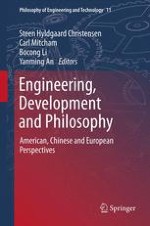2012 | OriginalPaper | Buchkapitel
14. The Local Engineer: Normative Holism in Engineering Formation
verfasst von : Gary Lee Downey, Ph.D.
Erschienen in: Engineering, Development and Philosophy
Verlag: Springer Netherlands
Aktivieren Sie unsere intelligente Suche, um passende Fachinhalte oder Patente zu finden.
Wählen Sie Textabschnitte aus um mit Künstlicher Intelligenz passenden Patente zu finden. powered by
Markieren Sie Textabschnitte, um KI-gestützt weitere passende Inhalte zu finden. powered by
